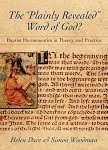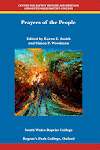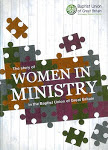A Sermon for Bloomsbury Central Baptist Church
31st July 2022, 11.00am
1 Peter
2.18-25
Slaves,
accept the authority of your masters with all deference, not only those who are
kind and gentle but also those who are harsh.
19 For it is a credit to you if, being aware of God, you
endure pain while suffering unjustly. 20
If you endure when you are beaten for doing wrong, what credit is that? But if
you endure when you do right and suffer for it, you have God's approval. 21 For to this you have been
called, because Christ also suffered for you, leaving you an example, so that
you should follow in his steps. 22
"He committed no sin, and no deceit was found in his mouth." 23 When he was abused, he did not
return abuse; when he suffered, he did not threaten; but he entrusted himself
to the one who judges justly. 24
He himself bore our sins in his body on the cross, so that, free from sins, we
might live for righteousness; by his wounds you have been healed. 25 For you were going astray like
sheep, but now you have returned to the shepherd and guardian of your souls.
The first verse of our reading this morning,
along with
is parallels in some of Paul’s letters,
is surely one of the most catastrophically misused verses in
the New Testament,
because the
entire theological construction
that
has allowed Christians to own slaves
has been
built on these passages.
From the transatlantic slave trade, to apartheid, to the
legacy of racism,
some of the
most grievous sins of the so-called Christian world begin here.
So what are we to make of a such a troubling phrase as,
‘Slaves, accept the authority of your
masters with all deference,
not only those who are kind and
gentle but also those who are harsh.’? (2.18)
Part of our
problem is that we, here in Bloomsbury in 202,
are reading this verse from a
perspective of power.
It is an unavoidable truth that we are the beneficiaries of Western
Capitalism,
a system founded in the
legacy of the transatlantic slave trade
and maintained by its
twenty-first century equivalents,
we are the powerful ones in our
world.
We may not
like it,
we may not have asked for it,
and we may not even
realise it,
but our
position in life and society is predicated
on a system of globalized
domination, oppression, and enslavement.
From the
factories that make our clothes,
to the farmers who harvest our
luxury groceries,
to the finance systems
that keep us solvent,
we are all, at least by proxy,
slave-owners.
And, if
you’re anything like me,
you probably find that to be an
intensely uncomfortable realization.
And so,
when we read a verse like v.18,
and when we read it in the light of
the unspeakable evils
of the slave industry
that it has historically legitimated,
it is no surprise that we find this
verse, too, to be intensely problematic.
However,
and I say this recognizing that in no way
does this let any of us off the
hook,
I wonder if
we have been reading it upside-down, so to speak.
1 Peter
2.18 was not written for slave-owners, but for slaves.
It was not written to either justify
or challenge the powerful,
but to comfort the weak
and the vulnerable.
It was not, dare I say it, written
for us, but for others.
And if we are going to hear it,
we will need to make the effort to
shed ourselves
of some of our inherent
privilege,
and attempt to take a few steps in
another, less powerful, person’s shoes.
We simply
need, for a moment at least, to get over our emancipatory impulses,
and we need to leave behind our
modern discourse on human rights,
in order
that we can enter instead into a world
where Christians have no power to
change
either their own social
circumstances,
or the situations of
others.
Those in
the churches of Asia Minor at the end of the first century,
who were the original recipients of
this letter,
had no
option to buy fairly traded products,
or to demand ethical investment from
their bankers or pension fund providers.
They had no
political freedom to make the case for freedom for others,
and no freedom to research and
publish stories
that might re-frame the narrative of
their society.
Their lot
in life was fixed, usually from birth,
and there was little they could do
to change it.
Those
worshipping in the churches to which 1 Peter was written
were either slaves, or freemen of
the lower classes,
with possibly a small number of
slave owners for good measure.
Paul
addresses the responsibilities of slave-owners
in his letters to Ephesus (Eph. 6.9)
and Colossae (Col. 4.1),
but 1 Peter 2.18 is clearly written to those in the churches
who are slaves with no possibility
of repeal;
including
those who were not necessarily slaves of Christian masters,
but rather of those who are harsh, unjust,
and violent towards them.
And in the
advice to slaves, that we find so hard to hear with our modern ears,
the author offers them a radical
perspective on their plight:
He tells
them that they are already free.
This is a
revolutionary answer,
it is something that has the
capacity to turn the world upside down.
They are
slaves, but they are free.
His point
is that in their willful subordination of themselves to their earthly masters,
they become active participants in
the sociopolitical revolution of Jesus,
which began
with Jesus’ own willful subordination
to the forces of violence and hatred
that took him to his death on the cross.
This is the
upside-down thinking that I was talking about earlier,
where powerlessness becomes agency,
and slavery becomes freedom.
The lesson
that 1 Peter is attempting to convey
is that, in Christ, a paradigm shift
has taken place
in which
even the least powerful person receives the capacity
to respond in a Christ-like manner
to their circumstances,
however horrific and disempowering
those circumstances might be.
Even a slave can model the example of Christ,
who himself, like them, endured suffering and death for
doing right.
Now, I
admit it, from my point of view
as someone who has had choice and
privilege from my birth to today,
this all
has the potential to sound rather like a small crumb of comfort
designed to keep the workers in
their place.
And so it
has become, when this passage, and those like it,
have been taken from the poor
and pressed into the service of the
oppressors.
But for the
person who is utterly powerless,
this remains a revolutionary
perspective.
The slave
who chooses faithfulness to Christ in the face of suffering
becomes aligned with Christ’s own
faithfulness,
and so is
joined with Christ in the great project of salvation
which disempowers and unmasks all
powers of domination and oppression.
And this
crucible of suffering and disempowerment
smelts away all the layers of nuance
and compromise
with which the rest of
us, who do not face such heat of persecution,
manage to surround and
cocoon our own discipleship.
The slave
who subordinates themself to the evil powers,
whilst refusing themselves to do
evil,
speaks of a
faithfulness to Christ
that utterly rejects all forms of dominance,
oppression, cruelty, or violence.
By refusing
the path of revolutionary emancipation,
and by choosing not to seek to
reverse the balance of power,
or to long for violent retribution
against their oppressor;
the slave
in Christ demonstrates
that any who would seek such power over others,
whether they be master
of many slaves,
or the perpetrator of
hidden domestic violence,
are simply un-Christian.
There is no
place here for violent or dominant Christianity in any form.
Because to seek to take power over
another
is to seek to take power over
Christ.
And this is
a hard message for those of us
who have inherited considerable
power to hear.
The message
of 1 Peter may be comforting to those who are powerless,
but it is profoundly challenging to
those of us who are powerful;
because the
situation of the Christian slave
is offered as a paradigm for the way
all Christians are to live in the world.
We saw in
our first sermon on 1 Peter, a couple of weeks ago,
that central to the message of the
book
is the principle that
Christians are called from the world by God,
sanctified and
transformed by the Spirit,
and then sent back to
the world as resident aliens and exiles
to live in
obedience to Jesus Christ.
But what
does this obedience to Christ look like?
Well, says 1 Peter, it looks like
slavery.
We are all,
each of us, from the most powerful to the least,
called to realise that we live in a
world which is trying to dominate us,
to subjugate us, to bend
us to its will.
It will use
coercion if necessary,
but is equally happy to buy our
allegiance,
to pacify us with
pleasure and bribe us with benefits.
The lesson
we need to hear loud and clear from 1 Peter
is that ‘all existing social orders,
even those regimes
established on the constructs
of
emancipation and human rights,
are always only systems
of relative justice and injustice
[and] none of them, not even
egalitarian liberal democracies,
represent the arrival of
the new creation’. [1]
The lesson
we need to learn from the advice to the slaves
is that subordination to systems of
evil is not, in Christ,
a call to
‘fit [either] resentfully or happily into a given system,
whether hierarchical or egalitarian,
nor [is it]
a call to struggle for a higher place within it.’ [2]
Rather, the
call on us, as it was for the slaves of the first century,
is to ‘live and act as free persons
with respect to all existing systems.’ [3]
And so, I think, our attention is turned,
to the key issues for our society and our world,
and we can hear the call of 1 Peter
echoed in the letter of Paul to the church in Corinth,
challenging them to discover what it is to be a slave of Christ
in the midst of a hostile society:
1 Corinthians 7:21-24
Were you a
slave when called?
Do not be concerned about it.
Even if you
can gain your freedom, make use of your present condition
now more than ever.
For whoever was called in the Lord
as a slave
is a freed person belonging to the Lord,
just as
whoever was free when called is a slave of Christ.
You were bought with a price; do
not become slaves of human masters.
In whatever condition
you were called, brothers and sisters,
there remain with God.
The call
for subordination becomes, after the example of Christ,
a call for service:
to love of the other,
to self-giving,
to suffering for the
other.
And this is
a revolution unlike any other.
It is not the revolution of bombs
and guns,
or of knives and swords,
as the oppressed rise up against
their oppressor
to reverse the status
quo
and assume power in
place of powerlessness.
But neither
is it a quiet acquiescence
and submission to the powers that
be.
Rather, it
is the dogged determination
to live life by one rule, and one
rule alone;
and that is the rule of Christ.
The world
challenges us to a choice:
acquiescence or revolution
– and both will break
our spirits and consume our souls.
But the
path of Christ is the third way,
it is the path of obedience to
Christ
in
the face of overwhelming opposition.
It is the path that says it is
better to die for right than to live for wrong,
so
stay faithful in the face of all pressures to conform.
And it is
this path of obedience that sows the seeds
of the kingdom of Christ in the
world,
the seeds
that scatter throughout society to spring up suddenly
bearing the fruit of the kingdom in
their own time and place.
1 Peter
knows full well that the world will treat such people harshly
– he knows that slaves and freemen
alike will face opposition
if
they take seriously their commitment to nonviolent resistance
to
the systems of violence that dominate the world,
and so he
points his readers to the example of Christ,
who ‘entrusted himself to the one
who judges justly’ (v.23).
We who have
become slaves of Christ
can join him in leaving the enaction
of justice to God,
because we
know that if we take justice into our own hands
we simply become the system we are
seeking to undermine,
and we in our turn become the agents
of the oppression of others.
In sharing
in the subordination of Christ,
we follow the pattern of the
original messianic revolution, Jesus Christ.
He is our
example and our teacher in
how we should live as aliens and
exiles in this world of domination:
‘When he
was abused, he did not return abuse;
when he suffered, he did not
threaten’ (v.23).
We are
followers of the one who ‘emptied himself,
taking the form of a slave, being
born in human likeness.
And being
found in human form,
he humbled himself and became
obedient to the point of death
--
even death on a cross’,
as Paul
puts it in his letter to the church in Philippi (Phil. 2.7-8).
It is by
taking this Christ-like path
that we break free from the shackles
of society
to live
lives which bring the new creation into being
in the midst of our current social
order.
When we
live as slaves of Christ, the whole world is changed.
Jesus, in
his life and example,
makes ‘a complete and fundamental
break
with the sins, lies, threats,
abuses, and violence
of
existing political, social, and familial systems.’[4]
And so any
truly Christ-like response
to the systems of domination that
enslave the world
must make that same break.
Just as
there is no place in 1 Peter
for a Christian who would seek
violent domination over another,
neither is
there any mandate for Christian guerrilla warfare, armed revolt,
or indeed any attempt to right
wrongs
in ways that require the humiliation, suffering, and death of others.
Rather,
just as Jesus took upon himself
the socially and politically
authorized violence of the empire,
so those
who would follow him
must also find the nonviolent path
to transformation.
So what
does this mean for us?
What are we
to do when faced with monstrous injustice?
How do we respond to the
illegitimate or oppressive regime?
What do I say to the cruel master,
or
the man who beats his wife?
How can I make the world right?
The answer,
of course, is that I can’t.
I can’t make the world right,
and
if I take it upon myself to enact justice
I
simply become part of the problem.
The path of
Christ is to trust ourselves
to the one who judges justly,
and in the
light of that to find freedom
from our enslavement to the
narratives of redemptive violence
that underlie the scripts by which
our society keeps acting.
When we
together learn to do this,
we become together the new humanity
that is in Christ Jesus,
and our collective
woundedness, our addiction to revenge,
is healed by the wounds of the one
who died for the sins of the world.
We who were
lost like sheep
are drawn back to the shepherd who will
lead us into life.
So what
does it mean, then,
for us in our world to live as
slaves of Christ?
Can we discover, in our own lives,
that we are truly free from all the
systems and powers
that
seek to dominate and dictate our daily living,
to beat, coerce and cajole us into
acquiescence
to
their whims and desires?
What might
it mean for us to have the courage to do right and die for it,
rather than to do wrong and die
anyway?
Can we see the truths of our society’s enslavement
that are every bit as self-evident
and immutable
as
the system of slavery that kept the Roman empire functioning?
And what
would it look like for those of us enmeshed in such systems
to discover that in Christ we are
truly free?
Can we hear the call on us to live lives of absolute non-violence;
of unconditional acceptance of the
other;
of radical obedience to the path of
Christ in all areas of our lives?
It may seem
that such a thing is beyond us,
that we are too compromised, too
trapped, too enslaved.
It may seem
to us that this Christ-like path
is dangerous foolishness when taken
to this kind of extreme.
And so it
is.
Well, dangerous at least.
But it is
the challenge that 1 Peter dangles before us,
telling us that ‘to this you have
been called,
because
Christ also suffered for you,
leaving you an example,
so
that you should follow in his steps.’ (v. 21).
[1]
Harinck, 1 Peter, p.81.
[2]
Harinck, 1 Peter, p.81.
[3]
Harinck, 1 Peter, p.81.
[4]
Haricnk, 1 Peter, p.83)




















